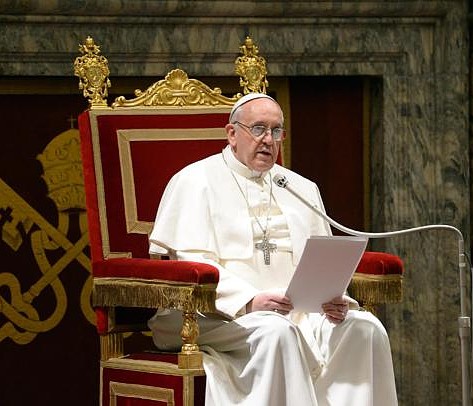Pontifical Lithuanian College of St. Casimir – Guest House Villa Lituania
In 1944, when the Soviets occupied Lithuania for the second time, everyone perceived the impending misfortune to both the Church and the nation. Violence, arrests, prison, exiles and moral oppression especially endangered bishops, priests, religious and all the intellectuals among the faithful. With the fires from the front approaching, the Lithuania’s Bishops decided to quickly send a group of seminarians to Germany to continue their studies in Eichstätt’s Seminary.
A year later, with the assistance of the Holy See and Lithuanian clergy in the diaspora, 20 seminarians were sent to Rome in the hope of establishing St. Casimir’s Lithuanian College under the leadership of Msgr. L. Tulaba, who had earlier come to Rome from Eichstätt. Temporarily the Lithuanians stayed at the South American College and attended lectures at the Pontifical Gregorian University. Shortly after, a search of funds, as well as building for the College began.
Thanks to a generous donation from a Lithuanian-American pastor, Msgr. A. Briška, the building at Via Casalmonferrato 20 was purchased. From autumn 1946, the College began its activity at this address, and continues there until nowadays. On May1, 1948, The Pontifical Lithuanian College of St. Casimir was erected in an official canonical form.
The history of the College may be divided into two important periods. The first period dates from the establishment of the college to 1991. During this time, the candidates came from the Lithuanian diaspora, which they later returned to engage in pastoral work. The second period began in 1991 and continues up until today. With the reestablishment of Lithuania’s independence after 50 years life under the iron curtain, at the Holy Father’s request and under the care of the new rector Msgr. Alg. Bartkus, 20 seminarians and a few priests arrived from Lithuania. The Sisters of The Congregation of the Holy Family came from Lithuania to work at the seminary.
They continue this valued service today. With the approval of Holy See, it was decided that upon ordination of the first group of seminarians who had arrived from Lithuanian, the College would accept only priests, sent by Lithuanian bishops to Rome to seek advanced studies. Since 1948, more than 170 priests graduated from the College. Among these alumni are Cardinal Audrys J. Bačkis, H.E. Archbishops Jonas Bulaitis, and Gintaras Grušas, and Bishops Romualdas Krikščiūnas, Rimantas Norvila, Jonas Ivanauskas, Arūnas Poniškaitis. Upon completion of their studies, everyone returned to their homeland, where they took up the important mission of reviving the long persecuted religious life.
The College’s alumni, having acquired academic degrees, successfully work in diocesan curies, ecclesiastic tribunals, are in positions of responsibility in seminaries, lectures in universities, etc. St. Casimir’s College provides the conditions for the intellectual and spiritual formation of priests, but at the same time does not neglect the fostering of cultural and national dimension as well. This College has for long years assumed it’s role as of an institution which represented the Lithuanian culture and traditions.
After 1990, when the re-opened Embassies of the Lithuanian Republic have retaken their duty as of official representations, the College has nevertheless conserved it’s presence in Lithuanian diaspora’s in Italy life and continued to offer it’s own contribution for promoting various cultural activities. This present aspect is being constantly appreciated by Lithuanian Heads of State (Vytautas Landsbergis, Valdas Adamkus, Algirdas Brazauskas, Rolandas Paksas, Dalia Grybauskaitė) during their visits to St. Casimir’s College. Undoubtedly, the College intends to continue it’s functioning and further give the spiritual, intellectual and cultural contribution to the Homeland and to the Lithuanian diaspora. At the same time, it needs constant funding for it’s very existence.
At present, about a half of College’s expenses is yearly covered by the United States of America Bishops’ Conference and, for a smaller part, by Lithuania’s Bishops’ Conference through “Villa Lituania” guests house in Rome. The remaining half, nevertheless, has to be annually financed by private donators. For this reason, the College’s Rector expresses his most profound thankfulness, on behalf of the community of this College, for every member of the Lithuanian community who give their support by prayers and by offerings, will and testaments, when it is possible. While we express our gratitude to all our benefactors, assuring them of constant prayers at our daily Mass, we also ask the merciful Lord to grant to them abundant graces as recompense.





 Every Wednesday morning free tickets to attend the audience of the Holy Father are available at the reception for all guests of the villa.
Every Wednesday morning free tickets to attend the audience of the Holy Father are available at the reception for all guests of the villa.